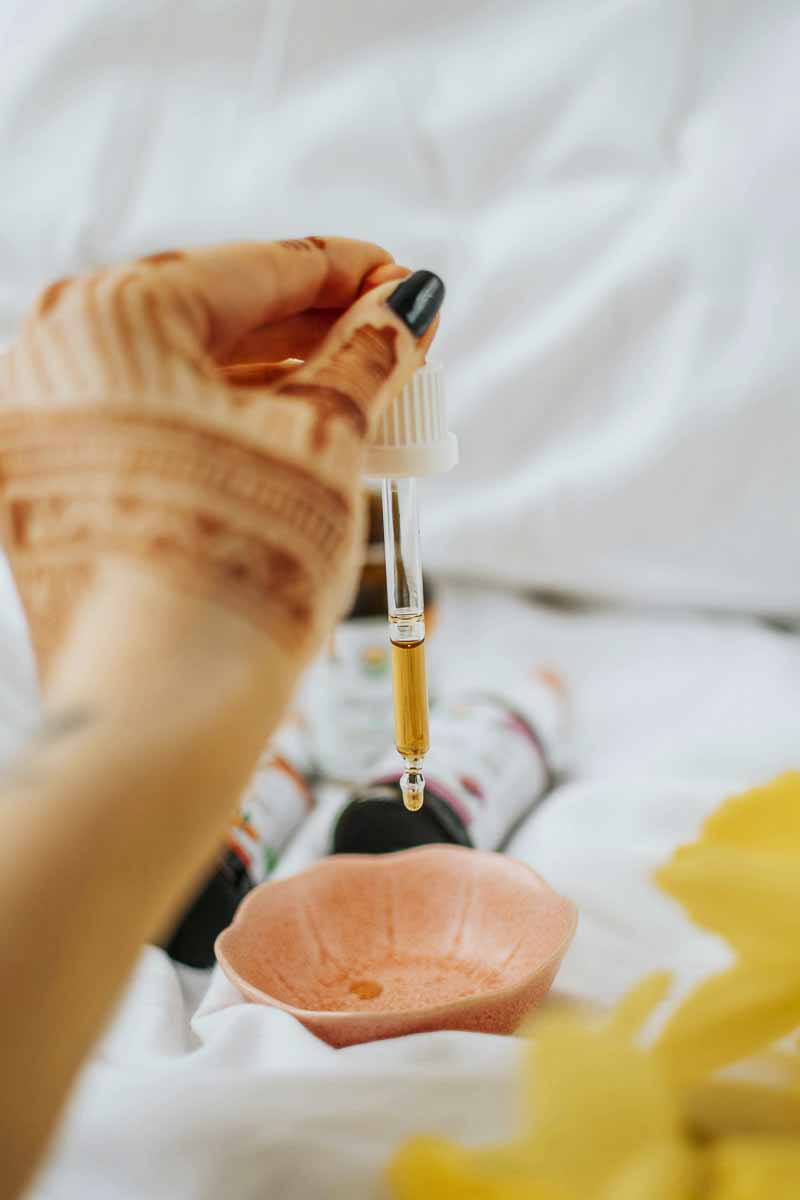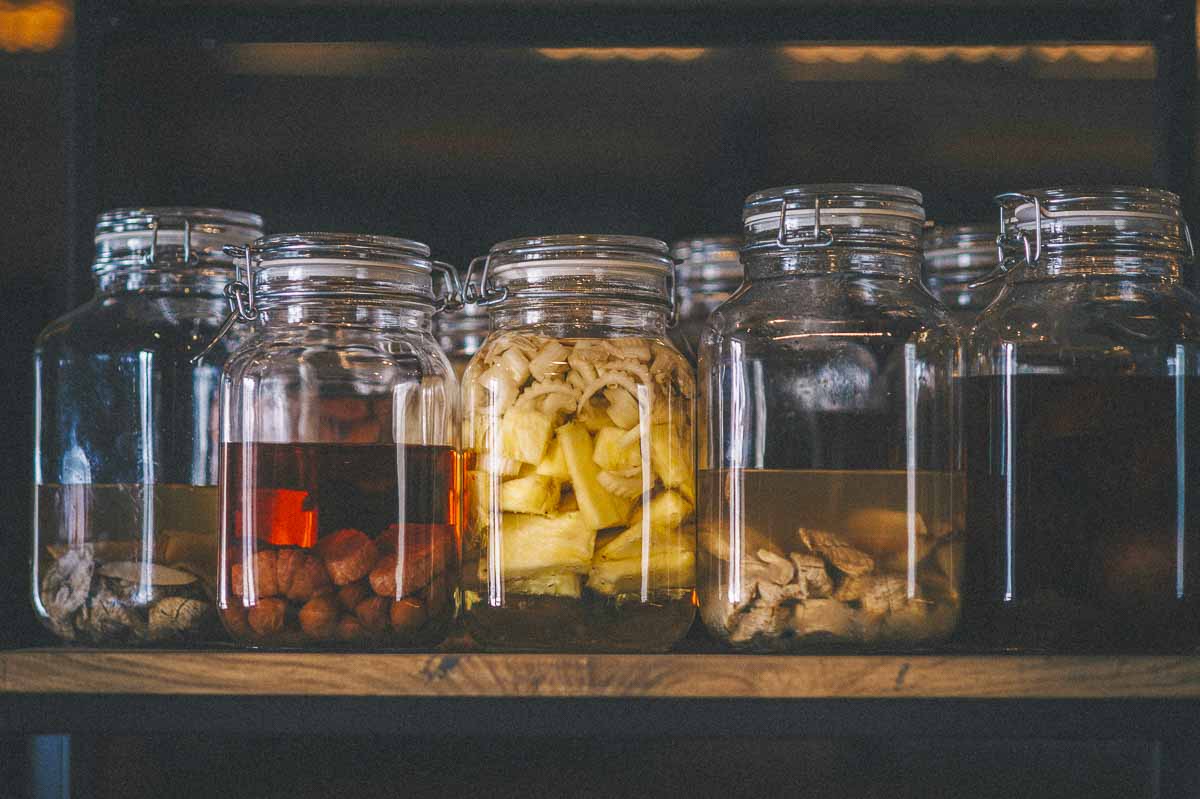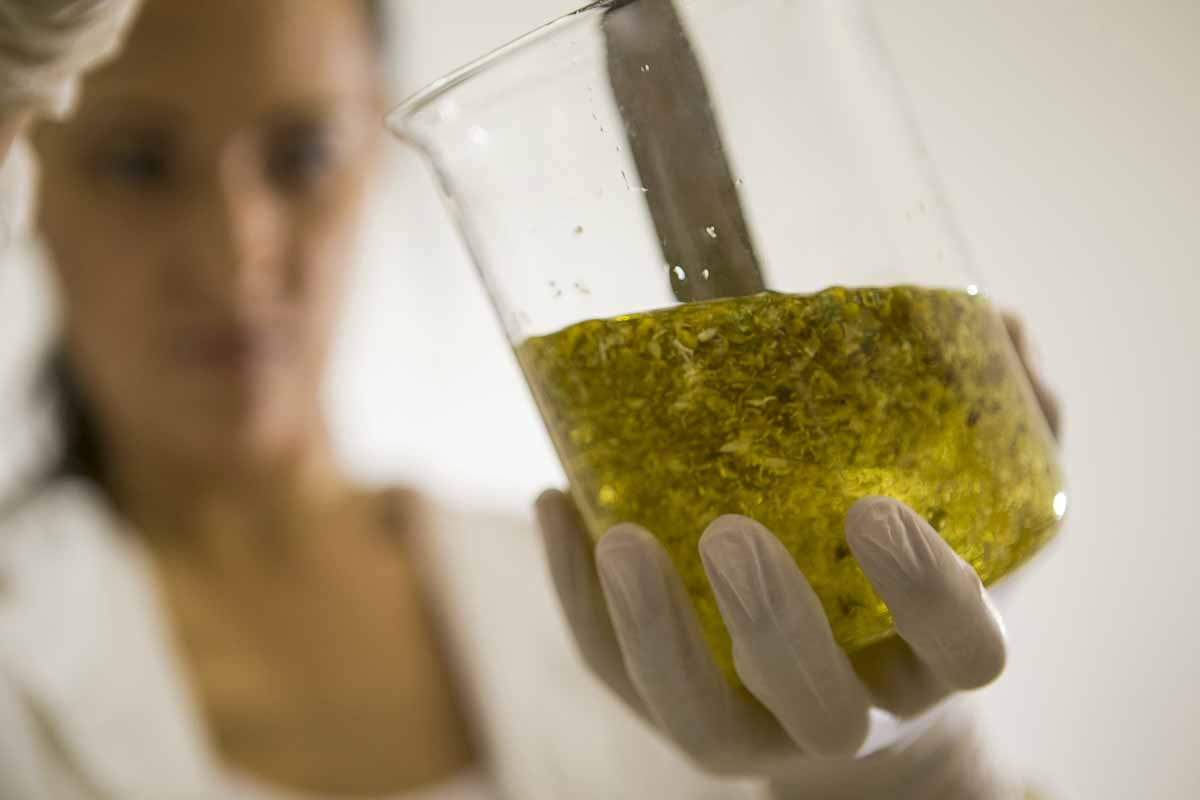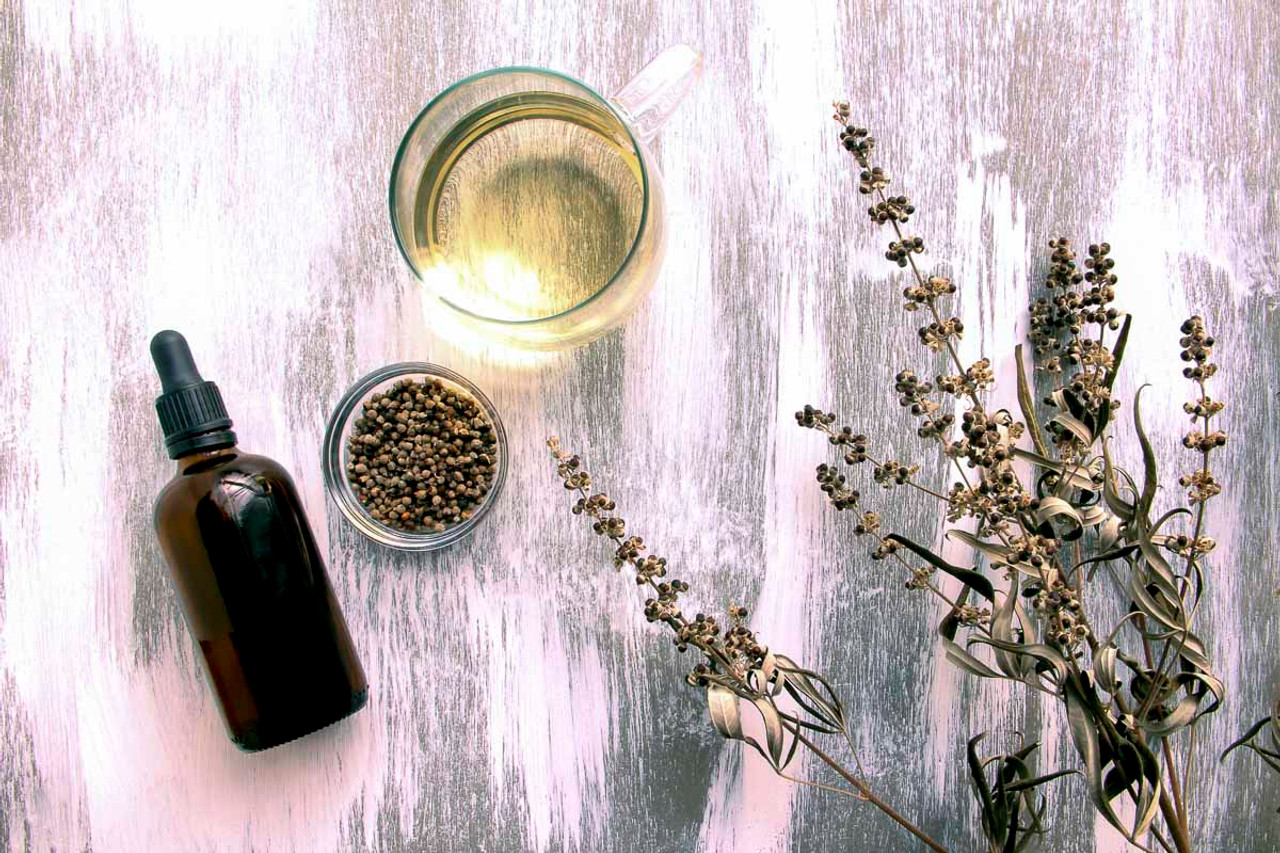Understanding Tinctures
\
Unlocking and Understanding the Potency of Herbal Tinctures: A Comprehensive Guide
 Tinctures are a foundational component of Western herbalism and herbal medicine. As we embrace these healing traditions, tinctures serve as a conduit for harnessing the therapeutic potential inherent in plants, mushrooms, fungi, and other beneficial compounds.
Tinctures are a foundational component of Western herbalism and herbal medicine. As we embrace these healing traditions, tinctures serve as a conduit for harnessing the therapeutic potential inherent in plants, mushrooms, fungi, and other beneficial compounds.
My personal journey into herbal medicine began in the mid-1990s with the use of a feverfew (Tanacetum parthenium) tincture for migraine prevention. This experience was foundational in cultivating my appreciation for herbal medicine, the power of plants, and the pivotal role tinctures hold within these traditions.
Despite their widespread popularity, there is a fair amount of misunderstanding surrounding tinctures, fueled in part by the wellness industry and perpetuated by unscrupulous "wellness influencers" concerned only with profits and maximizing their own popularity. This exploitation takes advantage of the traditions behind herbal medicine and the centuries of practice that support them. In a commercial environment where profitability can overshadow efficacy, consumers are urged to approach tinctures with discernment.
In this guide, my goal is to provide a solid understanding of tinctures, offering clarity and depth of knowledge into their formulation, application, and the critical elements influencing their quality and efficacy. Through detailed examination and clarification, I aim to empower readers to make informed decisions about integrating tinctures into their wellness routines, unlocking their full healing potential.
What Exactly is a Tincture?
At its core, a tincture represents a concentrated liquid extract derived from medicinal plants or fungi. This extraction process, typically facilitated by alcohol or alternative solvents like apple cider vinegar or glycerin, unfolds over a span exceeding two weeks. The result is a menstruum brimming with the plant’s therapeutic compounds. Tinctures crafted with alcohol are particularly prized for their enduring stability and potential to maintain efficacy over centuries. The meticulous balance between alcohol and water is pivotal, not only for thorough extraction but also for the preservation of these extracts.
The durability of alcohol-based tinctures in preserving herbal medicines is unparalleled. Historical accounts reveal tinctures in New England, over three hundred years old, remaining nearly as potent as when first concocted. Contrary to some beliefs, tinctures are not solely made with alcohol; a harmonious 50:50 blend of alcohol and water is favored to exploit the distinctive solubility characteristics of each. Moreover, a high alcohol content serves as a formidable barrier against contamination and microbial proliferation.
Addressing Concerns Over Gluten
A common concern relates to the gluten content in tinctures made from grain alcohol. Given the prevalence of grain-derived USP alcohol, such apprehensions are understandable. However, it's essential to recognize that the distillation process crucial for producing alcohol effectively removes contaminants, including gluten. Consequently, USP grade alcohol, the gold standard for tincture production, is intrinsically gluten-free. Emphasizing this point, it's acknowledged that all distilled spirits are deemed 100% gluten-free.
Unveiling the Profound Benefits Tinctures Offer

Preserving the Harvest In the modern era, our access to herbs has been transformed, yet tinctures remain invaluable in preserving the potency of harvested plants. This is especially true for individuals who cultivate their own botanicals. While the necessity for preservation through tinctures has diminished due to the ease of accessing a diverse range of herbs worldwide, the traditional practice of tincturing remains crucial for those engaged in wild harvesting or herb cultivation. Despite advancements in herb processing, the convenience of tinctures, compared to powdered extracts or whole herbs, is noteworthy. Thus, while its significance has evolved, the preservation quality of tinctures remains relevant in specific contexts within the herbal medicine landscape.
Precision in Dosage and Administration The true value of a high-quality tincture lies in its precise dosages, determined by the extraction ratio—an essential indicator of herb-to-alcohol concentration. This ratio is critical for consumers seeking to understand the potency of their tincture. However, the accuracy of this information depends on proper measurement and transparency from manufacturers, revealing a gap in some commercial practices. A tincture's extraction ratio, when disclosed, provides vital information about the strength and amount of the original plant material used, ensuring consumers can make informed decisions about their purchases.
Swift Absorption, Bioavailability, and Efficacy A standout feature of tinctures is their rapid absorption and ability to bypass the digestive system. The alcohol in tinctures facilitates the swift entry of plant compounds into the bloodstream, offering immediate therapeutic benefits. This quality is particularly beneficial for individuals with digestive issues or those seeking quick effects from substances like phyto-androgens found in Pine Pollen. The permeability of alcohol across cell membranes allows for the direct absorption of active compounds, bypassing the harsh conditions of the digestive tract. For many, especially as digestive efficiency declines with age, tinctures offer an effective solution to maintain health and vitality.
Using Tinctures to Harness the Pro-Androgenic Benefits of Pine Pollen
Pine Pollen serves as both a functional food and a pro-androgenic phytotherapeutic. Celebrated for its naturally occurring phyto-androgenic sterols, Pine Pollen contains plant hormones analogous to male sex hormones, which can aid in optimizing testosterone levels. Tincturing Pine Pollen is pivotal in capturing the full array of its bioactive pro-androgenic compounds, ensuring unmatched bioavailability and effectiveness.
In this way, the unique value of tincturing in the application of herbal medicine becomes clear. It is through tincturing that Pine Pollen transitions from being a functional food to being a potent pro-androgenic phytotherapeutic, maximizing its therapeutic potential for hormonal balance and overall wellness.
Unlocking the Potential of Functional and Medicinal Mushrooms Through Tincturing
Functional mushrooms, often referred to as medicinal mushrooms, are revered for their extensive health benefits, ranging from immune support to cognitive enhancement. However, much of their potential remains inaccessible due to chitin, a polysaccharide forming the cell walls of all mushrooms and fungi. It is within these cell walls that the beneficial compounds reside. As the human body cannot break down and digest chitin, the benefits of mushrooms remain untapped unless properly extracted. This holds true even for powdered or "raw" mushrooms.
Tinctures offer a crucial approach to extracting and harnessing the benefits of functional mushrooms. Through meticulous extraction methods, tinctures effectively dissolve the indigestible chitin, liberating the valuable bioactive compounds contained within. This transformative process significantly enhances the bioavailability of the mushrooms' medicinal properties, enabling us to fully reap the benefits of their health-promoting effects.
Tinctures in Chinese Medicine: Embracing Wisdom and Empowerment
 In Chinese medicine, tinctures, as understood in the Western context, were not nearly as commonplace as they are today in the West. However, what was common was the use of herbal wines—where herbs are infused in wine. Herbal wines played a similar, vital role in Chinese medicine.
In Chinese medicine, tinctures, as understood in the Western context, were not nearly as commonplace as they are today in the West. However, what was common was the use of herbal wines—where herbs are infused in wine. Herbal wines played a similar, vital role in Chinese medicine.
Both tinctures and herbal wines are celebrated for their deep penetrative ability, reaching the very essence of the body's vitality and wellness. Classical Chinese Medicine and Traditional Chinese Medicine held a widely held belief that alcohol-based herbal remedies could penetrate "right to the bones," effectively bypassing the digestive system for rapid absorption into the bloodstream.
Despite differences in terminology, the core principle aligns: both tinctures and herbal wines act as powerful conduits for the direct delivery of medicinal compounds to the body’s essential centers, fostering a state of balance and harmony.
In Pursuit of Deeper Knowledge
For those eager to deepen their understanding of tincture extraction ratios and production techniques, I encourage exploring the detailed articles "Understanding Tincture Extraction Ratios: A Guide to Potency and Efficacy in Herbal Medicine" and "Producing Dual-Stage Extraction Tinctures." These resources offer invaluable insights and guidance for anyone looking to advance their expertise in herbal medicine. They stand as essential readings on your path toward mastering the art and science of tincture-making.
Wrapping It Up: A Journey Towards Enlightened Herbal Practice
As we've journeyed through the realm of tinctures together, it's evident that these potent extracts stand at the intersection of ancient tradition and modern herbal practice. By embracing the core principles of tinctures—their preservation capabilities, precise dosages, and efficient absorption—we embark on a path to wellness that honors the wisdom of the past while meeting the demands of the present. Amidst the abundance of options in the tincture market, remember: knowledge serves as your compass, and discernment as your guiding star. Choose wisely, seeking tinctures that not only promise health and vitality but consistently deliver on their potential.
Glossary of Terms
- Tincture: A liquid extract of medicinal plants or fungi, typically made by soaking the plant material in a solvent such as alcohol, glycerin, or vinegar to extract its medicinal compounds.
- Extraction Ratio: A measure of the concentration of herb-to-solvent in a tincture, indicating the proportion of plant material to the liquid solvent, such as 1:4, 1:5, or 1:10.
- Phytochemicals: Bioactive compounds found in plants that contribute to their medicinal properties, including flavonoids, alkaloids, and terpenes.
- Solvent: The liquid substance used to extract medicinal compounds from plants during the tincture-making process, such as alcohol (ethanol), apple cider vinegar, or glycerin.
- Menstruum: The resulting liquid solution after the extraction process, containing the dissolved medicinal compounds extracted from the plant material.
- Marc: The leftover plant material remaining after the extraction process, which is typically discarded as it contains cellulose, fiber, and lignins.
- USP Grade Alcohol: Alcohol that meets the standards set by the United States Pharmacopeia (USP) for purity and quality, often used as a solvent in professional tincture manufacturing.
- Pro-Androgenic: Referring to substances that promote the production or activity of androgens, such as testosterone, in the body.
- Chitin: A polysaccharide found in the cell walls of fungi, including mushrooms, which is indigestible to humans and requires breakdown for bioavailability of beneficial compounds.
- Functional Mushrooms: Mushrooms known for their health-promoting properties beyond basic nutrition, including immune support, adaptogenic effects, and cognitive enhancement.
Site Disclaimers
General Guidence
The content on this site is provided for educational and informational purposes only and should not be construed as medical advice. Always consult a qualified healthcare provider before making changes to your diet, lifestyle, or health regimen, particularly if you are pregnant or nursing, under the age of 18, managing allergies or known sensitivities, or living with any medical conditions.
At RAW Forest Foods, your safety is our priority. Please note that our products are dietary supplements, not medications. The following disclaimer applies:
* These statements have not been evaluated by the Food and Drug Administration. These products are not intended to diagnose, treat, cure, or prevent any disease.
Ingredient Transparency and Allergen Awareness
We are committed to providing transparent ingredient information to help you make informed decisions. If you have or suspect you have allergies to any of our ingredients, we strongly advise against using our products, as allergic reactions can be severe.
Interaction with Medications
If you are taking any medications, consult with your healthcare provider before using supplements. Certain supplements may interact with medications, potentially altering their effectiveness or causing unwanted effects.
For more details, please review our full Terms and Conditions.






